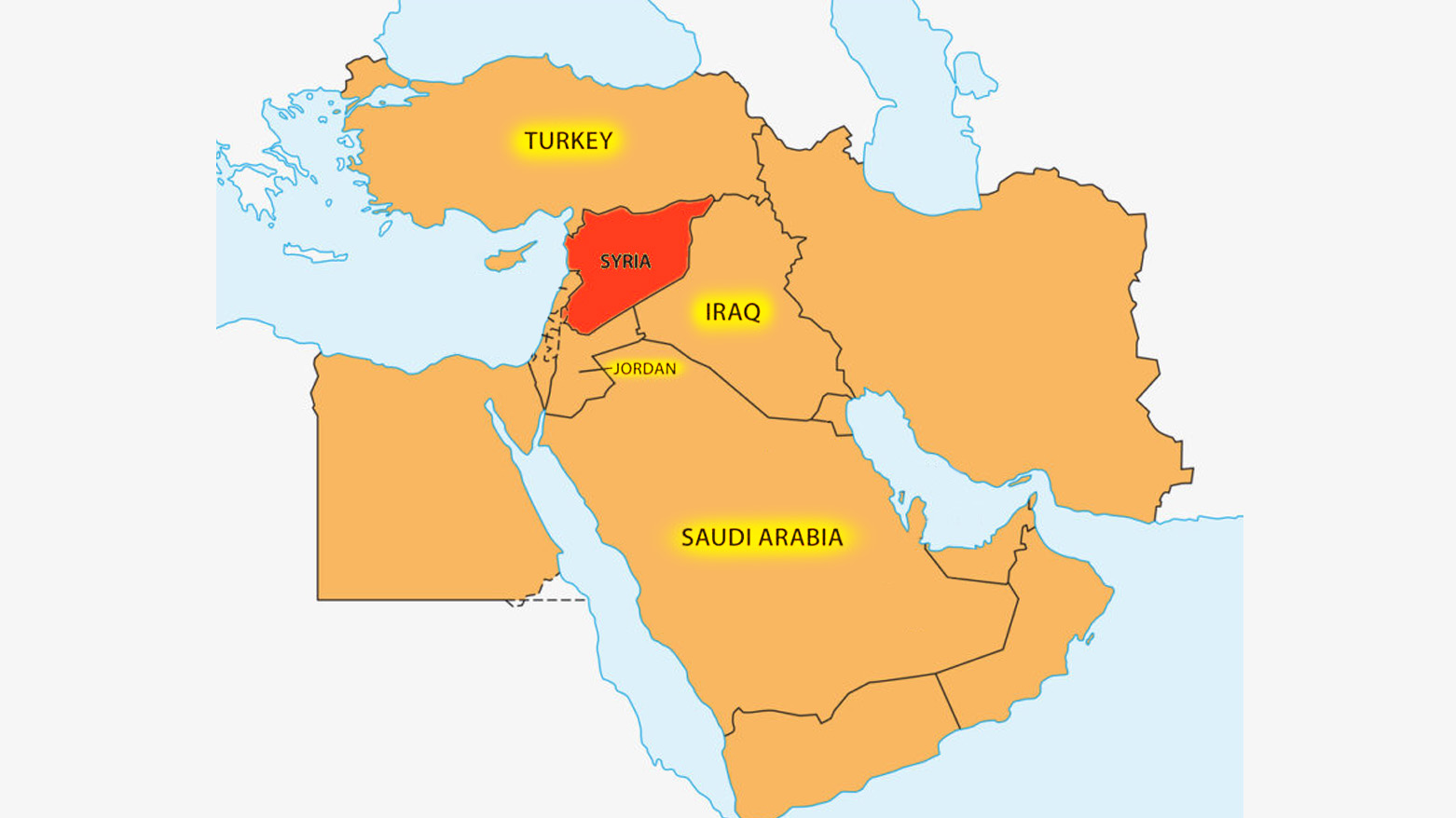Regional Reactions to Syria’s Coastal Clashes Intensify
As tensions continue to mount, the international responses highlight growing concerns over Syria’s fragile transition

ERBIL (Kurdistan24) – The Syrian coastal region remains volatile following violent clashes between security forces and pro-Assad militants, prompting strong regional and international reactions. Russia, Turkey, Iraq, Saudi Arabia, and Jordan have all issued statements addressing the crisis, while the Syrian Observatory for Human Rights (SOHR) denied that the conflict is sectarian, emphasizing that it is a battle between remnants of the former regime and state security forces.
SOHR: The Conflict Is Not Sectarian
Rami Abdulrahman director of Syrian SOHR told Kurdistan24 that the ongoing clashes in Latakia are not a sectarian struggle between Alawites and the new government, but rather a battle between former regime loyalists and state security forces.
"The ones attacking the public security forces are remnants of the previous regime, supported by hidden external hands," the SOHR director said. He urged Damascus to take full responsibility for protecting Syria rather than relying on international forces, adding that "ensuring security is the duty of the new government and all components of Syrian society."
Russia Calls for Calm and End to Bloodshed
As fighting continues in Latakia, Russia urged all sides to de-escalate the situation and put an end to the violence.
Russian Foreign Ministry spokesperson Maria Zakharova stated on Friday:
"We call on Syrian leaders who have influence over the situation on the ground to make every effort to stop the bloodshed as soon as possible."
Zakharova emphasized that Moscow is ready to coordinate closely with international partners to stabilize the situation.
Iraq Tightens Border Security
With the situation in Syria’s coastal region worsening, Iraq has reinforced security measures along its border.
An Iraqi security source told the Iraqi News Agency (INA) that authorities have implemented emergency procedures and strengthened defensive lines along the Karmiyan region and all border areas.
According to Iraqi security officials, border protection efforts rely on a comprehensive strategy, including three layers of defense tailored to the region’s complex geography.
"Iraq is committed to ensuring that its borders with Syria remain stable and secure, preventing any direct threats to national security," the source added.
Turkey Warns Against Destabilization
Following the outbreak of violent clashes, Turkey issued a stern warning against actions that could undermine Syria’s stability.
Turkish Foreign Ministry spokesperson Oncu Keceli stated on Friday that "rising tensions in Latakia and attacks on security forces could derail efforts to unite Syria and foster national cohesion."
He cautioned that "such provocations could pose a serious threat to peace in Syria and the wider region."
Turkey, which continues to support Syria’s transitional government, maintains a significant military presence in northern Syria.
Saudi Arabia Condemns Attacks on Security Forces
Meanwhile, Saudi Arabia strongly condemned the ongoing violence, particularly the attacks targeting Syrian security forces.
The Saudi Foreign Ministry described the armed confrontations as "crimes committed by unlawful groups." In an official statement, Riyadh reaffirmed its support for the Syrian government’s efforts to restore order and maintain civil peace.
Jordan Reaffirms Support for Syria
Amid escalating tensions, Jordan also voiced its support for the Syrian government, rejecting any external interventions aimed at destabilizing the country.
In a statement reported by the Syrian Arab News Agency (SANA), the Jordanian Foreign Ministry said:
"We stand with our Syrian brothers and strongly condemn all foreign interventions that threaten Syria’s security, stability, and institutions. We affirm our support for the Syrian government in all measures taken to protect the country’s security and the safety of its people."
As tensions continue to mount, the international responses highlight growing concerns over Syria’s fragile transition and the potential impact of ongoing violence on the region’s security.